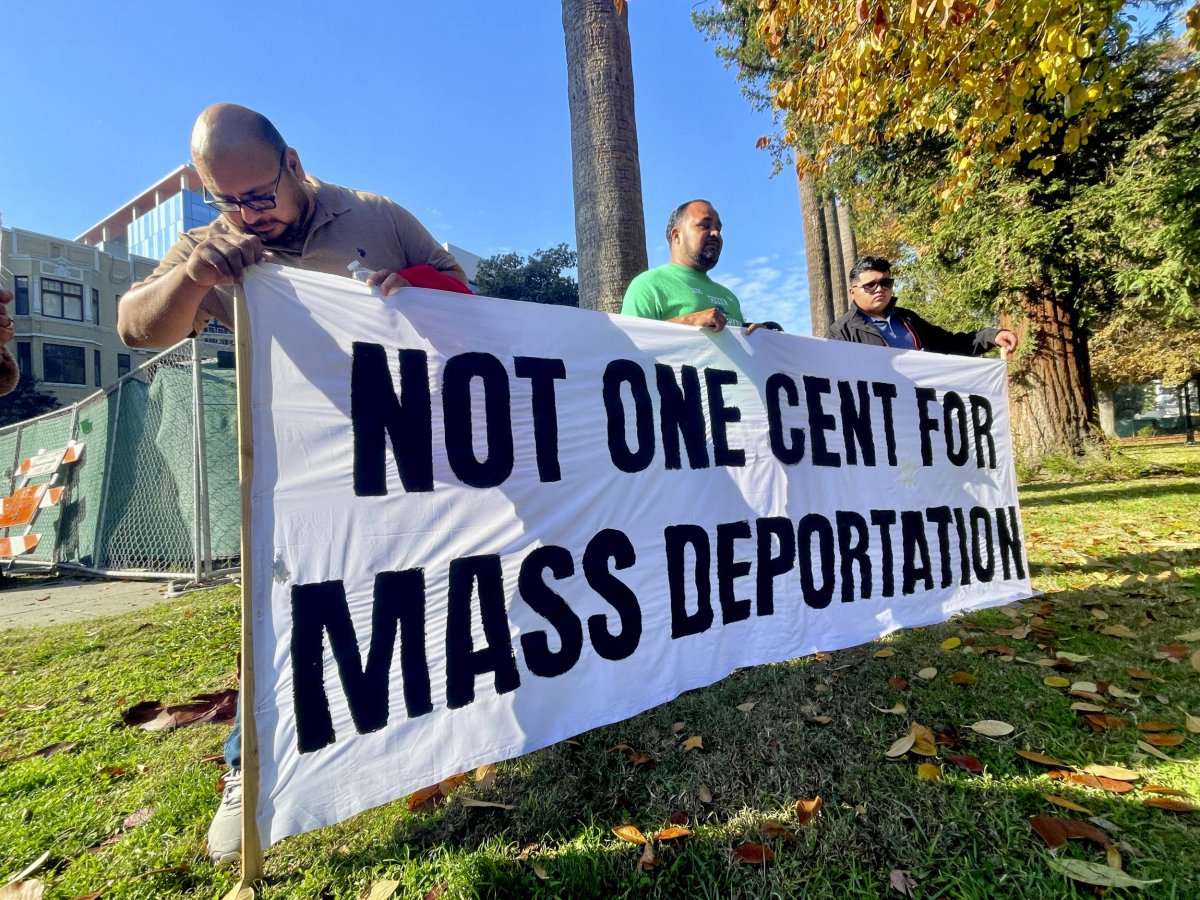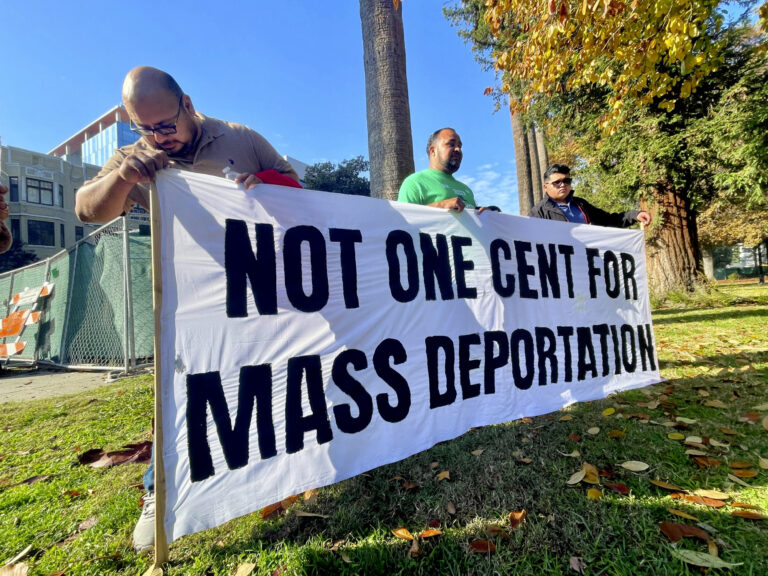California could lose an estimated $275 billion from its economy if President Donald Trump’s plans for mass deportations go ahead, a new study has found.
The immigration crackdown could remove 1.5 million, or 8 percent, of California’s workforce, which is expected to harm small businesses and potentially devastate entire industries, including agriculture, according to research by the Bay Area Council Economic Institute and the University of California, Merced.
Why It Matters
Trump has vowed that his administration will remove millions of individuals living in the United States without legal status.
On Sunday, Trump ordered federal immigration officials to ramp up deportations from Democratic-run cities and sanctuary jurisdictions, such as California, saying Immigration and Customs Enforcement (ICE) should “do all in their power to achieve the very important goal of delivering the single largest Mass Deportation Program in History.”
As home to the largest number of undocumented immigrants in the U.S., California’s $4.1 trillion economy relies deeply on their labor. The fallout from mass deportations would extend beyond the state, leading to higher food prices nationwide and necessitating industry-wide adjustments.
Small businesses, public services, and entire sectors, such as agriculture and construction—where immigrants form the backbone of the workforce—stand to be critically affected.

Haven Daley/AP
What To Know
In California, immigrants collectively contribute $23 billion each year in taxes to federal, state, and local governments, with undocumented workers each paying an average of $7,000 in annual taxes.
Nearly 11 percent of immigrant-owned small businesses in California have undocumented owners, contributing to job creation, local tax bases, and neighborhood economies, the study found. Regions such as the San Joaquin Valley, Inland Empire, San Francisco Bay Area, and Los Angeles—with high concentrations of undocumented residents—were identified as particularly vulnerable to economic disruption.
Based on wages alone, undocumented workers drive 5 percent of the state’s economic output, rising to 9 percent when considering indirect contributions, according to the study.
Agriculture, which relies on immigrant labor for 63 percent of its workforce (with almost 26 percent undocumented), would be acutely harmed by mass deportation. The construction sector relies on immigrants for 41 percent of its jobs, including 14 percent who are undocumented, underscoring how labor loss would impact both industries and consumers statewide.
“Immigrants, both documented and undocumented, are deeply and intricately woven into our overall economic fabric,” said study co-author Abby Raisz, research director for the Bay Area Council Economic Institute.
“The impact of losing 8% of California’s workforce would have a crippling effect on the state economy. The impacts would extend far beyond California’s borders, with labor shortages contributing to higher food prices nationwide.”
The study’s release coincides with fluctuating signals from federal enforcement. At the end of last week, Trump reportedly directed ICE to pause most raids at agricultural and hospitality sites; however, this pause was walked back just days later after criticism from his political base.
The uncertainty has created confusion among immigration officials and those at risk of deportation, while business groups stress the urgency for comprehensive immigration reform.
What People Are Saying
Abby Raisz, research director for the Bay Area Council Economic Institute, in a report: “Immigrants, both documented and undocumented, are deeply and intricately woven into our overall economic fabric.”
Maria-Elena De Trinidad Young, professor of Public Health at UC Merced, in the study’s summary: “California has a long and rich history of embracing immigrants and the many valuable contributions they bring to our state, economically, culturally and in so many other ways…Understanding how increased immigration enforcement is affecting such a large swath of our population is critical to addressing the fears many in the immigrant community are experiencing and informing how we plan for not only economic and fiscal impacts but the human impacts.”
Tricia McLaughlin, assistant secretary in the Department of Homeland Security, in a Tuesday statement: “there will be no safe spaces for industries who harbor violent criminals or purposely try to undermine ICE’s efforts.”
What Happens Next
Debates in Congress and within the administration over the design and impact of immigration policy continue.
Update 6/17/25, 3:21 p.m. ET: This article was updated with additional information.


